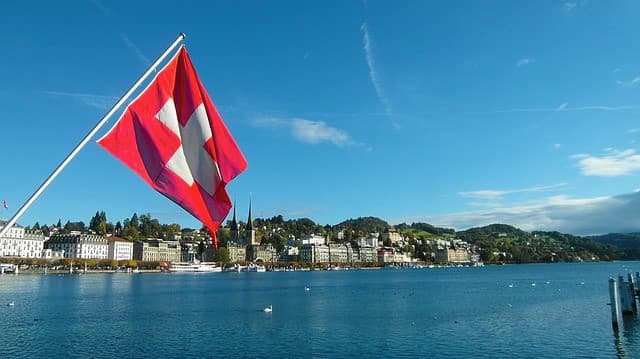7 tips for learning Swiss French
How hard is it to learn Swiss French exactly? And how different is it from “standard” French? We’ve got seven tips to help you learn the local lingo.

1. Relax!
One of the hardest parts of learning a new language is simply how fast people talk. Even when you’ve got down the basics on paper, it can be difficult to understand what real-live people say.
We’re not saying that you won’t experience that in Switzerland. To some degree you probably still will. But hey, at least it’s not Paris! Word has it that the Swiss speak the language more slowly than the French – a definite advantage for language learners!
Oh, and don’t be afraid of making mistakes. Even film star Jean Dujardin has reportedly had struggles learning new languages, but he just learned to laugh about it.
“I recently read that he wanted to become famous in the US, but his English wasn’t good enough,” Claude Oggier at the Swiss French School laughs. “But he overcame his fear and now he just makes fun of it and enjoys speaking bad English with friends like George Clooney.”
Learning a language should be fun – so accept that you’ll make mistakes and just roll with it.
2. Start social
The most important part of learning any new language is to practice. And it will be more fun if you can meet new people at the same time! That doesn’t mean you have to talk to random people on the street (though that’s also highly recommended). A class that meets regularly can be hugely beneficial.
“Our language classes at the Swiss French School are obviously a great place for expats to learn Swiss French – but it’s also a good place to meet new people,” says Oggier. “Many people find that it’s a helpful way to build a social circle and become more integrated in Switzerland.”
3. Know your numbers
You may have heard of the crazy French counting system. 80 doesn’t exist – it’s four-twenties. Want to say 97? That will be four-twenties- ten-seven.
Not so with the Swiss! You’re in luck – 97 is nonante-sept, ninety-seven. Much simpler!
Keep in mind that numbers do vary slightly from region to region, though. Some cantons use huitante for 80 – but not all!
4. Learn the lingo
It’s not just numbers that vary by region. Ask a local what words are a bit different and what you should know. Slang is an often-overlooked key to linguistic integration. Keep in mind that some regions use more standard French words while others mix in more German or have their own words.
The regional French language centre at the University of Neuchâtel has produced a Dictionnaire suisse romand that contains 2,400 words unique in their use to western Switzerland.
The scholarly reference book of more than 800 pages was first published in 1997 and updated in 2004. You can consult the online version for free. Of course, nothing beats taking a local Swiss French class!
5. Simplify!
In some ways Swiss French is easier than “French-French”. It’s not just the numbers that are simpler.
The Swiss have short, convenient words for many complicated French words. Like automatic teller machines and ticket dispensers. In France your tongue would have to stumble across guichetautomatique bancaire. But in Switzerland, it's just a bancomat!
And your téléphone portable? It's just a natel. Fromage blanc in France is just séré in Switzerland. So you can focus less brain energy on remembering the word for cheese and more energy enjoying it.
6. History is helpful
If Swiss French seems like Old French to a Parisian, that’s because the language spoken in Romandie retains many elements from the 16th and 17th centuries, expert Andres Kristol has told The Local.
Swiss French use “long vowels that were lost in standard Parisian French in the 18th and 19th centuries,” says Kristol, who is director of the University of Neuchâtel’s centre for the study of dialects and regional French.
7. Same same but different
Finally, don’t get too caught up in the differences. Yes, Swiss French is different from French in France, but it’s still basically the same language.
“It’s the same dish but the spices are different,” says Kristol, comparing the Suisse Romand language with “standard” French.
Don’t worry so much about the rules and just go with the flow!
This article was produced by The Local and sponsored by the Swiss French School.
This content was paid for by an advertiser and produced by The Local's Creative Studio.
Join the conversation in our comments section below. Share your own views and experience and if you have a question or suggestion for our journalists then email us at [email protected].
Please keep comments civil, constructive and on topic – and make sure to read our terms of use before getting involved.
Please log in here to leave a comment.